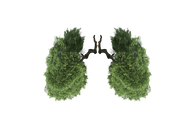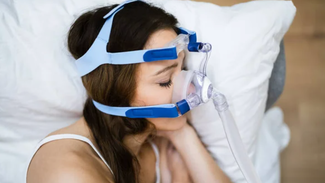breathe better, sleep better:
overcoming sleep disorders with optimal breathing
If your breathing during the day is less than optimal, your breathing during sleep will be dysfunctional too. If you suffer with snoring, insomnia, or sleep apnea, breath retraining can help to significantly reduce your symptoms. Above all, it is vital to restore nasal breathing during sleep, because breathing through an open mouth activates the stress response, and it leaves the airways more vulnerable to collapse, which can trigger snoring and even cause the breathing to periodically stop altogether.
snoringSnoring, often joked about, can have serious consequences if left untreated. It can lead to other sleep disorders, such as sleep apnea, as well as high blood pressure and cardiovascular issues. Additionally, it disrupts not only your sleep but also the sleep of your partner.
|
|
Just like an engineer considers all aspects of flow to optimise a pipe's performance, it's important to consider both the airway and breathing patterns when addressing snoring.
Snoring occurs when a large volume of air passes through a narrowed space, causing the tissues of the nose and throat to vibrate, resulting in noisy breathing during sleep. Simply put, snoring is a result of turbulent airflow. It is characterised by noisy breathing during sleep caused by the exchange of a large volume of air through a narrowed space, leading to the vibration of tissues in the nose and throat.
While healthy non-snorers breathe quietly through their nose and experience deep, undisturbed sleep, those who breathe heavily during sleep may experience a range of symptoms, including snoring, sleep apnea, disrupted sleep, insomnia, frequent urination, waking up fatigued with a dry mouth, and possibly a blocked nose.
Snorers can snore through their mouth, nose, or both. Mouth snoring occurs when a large volume of air passes through a collapsible airway, causing the soft palate to vibrate. It often stops when the mouth is closed during sleep. Nose snoring, on the other hand, is caused by turbulent airflow in the nasal airway, specifically where the nose meets the throat (nasopharynx). Nasal obstruction due to issues like nasal stuffiness, a deviated septum, or a smaller anatomical nose can increase resistance to breathing. Additionally, fast and forceful breathing can contribute to nose snoring. By learning to unblock the nose, transitioning to nasal breathing, and normalising breathing volume, you can eliminate nasal snoring.
As a demonstration of the effects of faster and harder breathing during nasal snoring, I frequently ask my clients to create a snoring sound through their nose. This often involves tightening the throat at the back of the nose and increasing the pace of breathing. Then, I encourage them to gradually slow down their breathing, inhaling and exhaling through the nose at a barely noticeable rate. Attempting to produce a snoring sound while breathing in a light and slow manner is typically more challenging.
Snoring affects a significant number of people, with approximately 45% of men and 30% of women snoring habitually.
While there are various treatments for snoring, such as nasal decongestants, nasal strips, surgery, and dental appliances, it is essential to address the underlying cause by correcting breathing volume and expanding the airways.
Don't hesitate to contact us on the form below to learn more about effective strategies for reducing snoring symptoms and improving the quality of your sleep.
While healthy non-snorers breathe quietly through their nose and experience deep, undisturbed sleep, those who breathe heavily during sleep may experience a range of symptoms, including snoring, sleep apnea, disrupted sleep, insomnia, frequent urination, waking up fatigued with a dry mouth, and possibly a blocked nose.
Snorers can snore through their mouth, nose, or both. Mouth snoring occurs when a large volume of air passes through a collapsible airway, causing the soft palate to vibrate. It often stops when the mouth is closed during sleep. Nose snoring, on the other hand, is caused by turbulent airflow in the nasal airway, specifically where the nose meets the throat (nasopharynx). Nasal obstruction due to issues like nasal stuffiness, a deviated septum, or a smaller anatomical nose can increase resistance to breathing. Additionally, fast and forceful breathing can contribute to nose snoring. By learning to unblock the nose, transitioning to nasal breathing, and normalising breathing volume, you can eliminate nasal snoring.
As a demonstration of the effects of faster and harder breathing during nasal snoring, I frequently ask my clients to create a snoring sound through their nose. This often involves tightening the throat at the back of the nose and increasing the pace of breathing. Then, I encourage them to gradually slow down their breathing, inhaling and exhaling through the nose at a barely noticeable rate. Attempting to produce a snoring sound while breathing in a light and slow manner is typically more challenging.
Snoring affects a significant number of people, with approximately 45% of men and 30% of women snoring habitually.
While there are various treatments for snoring, such as nasal decongestants, nasal strips, surgery, and dental appliances, it is essential to address the underlying cause by correcting breathing volume and expanding the airways.
Don't hesitate to contact us on the form below to learn more about effective strategies for reducing snoring symptoms and improving the quality of your sleep.
Insomnia
|
Insomnia can be caused by a combination of racing thoughts and irregular breathing patterns. When you find yourself struggling to fall asleep at night, it may be due to breathing issues during sleep, as well as the hyper arousal caused by poor breathing habits during the day. To combat insomnia, it's important to trigger the body's relaxation response and improve breathing patterns during sleep to ensure unobstructed airflow.
|
If you frequently wake up after four or five hours of sleep:
If you frequently wake up after only four or five hours of sleep, it can be challenging to fully wake up or easily fall back asleep. These awakenings may be caused by sleep disturbances, such as partial or complete collapse of the throat during breathing. Correcting dysfunctional breathing can resolve these issues.
If you frequently wake up after only four or five hours of sleep, it can be challenging to fully wake up or easily fall back asleep. These awakenings may be caused by sleep disturbances, such as partial or complete collapse of the throat during breathing. Correcting dysfunctional breathing can resolve these issues.
obstructive sleep apnea (OSA)
|
Breathe Better, Sleep Better: Managing Sleep Apnea with Optimal Breathing:
Are you tired of restless nights and waking up feeling exhausted? Obstructive Sleep Apnea (OSA) can have a significant impact on your overall health and wellbeing. But don't worry, there are strategies that can help you reduce symptoms and improve the severity of this condition. One effective approach is correcting dysfunctional breathing, enabling the switch to nasal breathing during sleep. Even if you currently use a CPAP or mandibular advancement device, addressing mouth breathing can greatly enhance your treatment outcomes. |
Unlock the Power of Optimal Breathing:
Restoring optimal breathing offers a natural and effective way to manage and even reduce OSA symptoms while promoting better sleep quality and overall health. By optimising your breathing patterns and reducing mouth breathing, you can enhance the functioning of your airways and improve oxygenation during sleep.
Addressing the Issue:
Mouth breathing is a common factor contributing to CPAP noncompliance, as the air meant to keep your airways open often escapes through your open mouth instead. By addressing this issue and transitioning to nasal breathing, you can improve the effectiveness of your sleep apnea treatment and experience better outcomes.
The Benefits:
Improved CPAP Compliance: Optimal breathing exercises help reduce reliance on mouth breathing, making it easier to adapt to and comply with CPAP therapy. By minimising air leaks and maximising the effectiveness of your treatment, you can experience enhanced sleep apnea management.
Enhanced Sleep Quality: Nasal breathing, encouraged through optimal breathing techniques, promotes optimal airflow, reduces snoring, and enhances oxygenation. As a result, you can enjoy better sleep quality, wake up feeling refreshed, and experience increased daytime energy levels.
Overall Health Promotion: Correcting dysfunctional breathing not only benefits sleep apnea management but also contributes to your overall health and wellbeing. Optimal breathing exercises support proper oxygen-carbon dioxide balance, reduce stress levels, and improve brain function, leading to a healthier lifestyle.
If you're ready to take control of your sleep apnea and improve the quality of your sleep, don't hesitate to contact us. Our experienced team at Breathing to Heal can provide you with effective strategies and guidance on incorporating optimal breathing into your sleep apnea management plan.
Contact us using the form below and let us show you how to breathe better, sleep better, and experience the transformative power of optimal breathing in managing sleep disorders.
Restoring optimal breathing offers a natural and effective way to manage and even reduce OSA symptoms while promoting better sleep quality and overall health. By optimising your breathing patterns and reducing mouth breathing, you can enhance the functioning of your airways and improve oxygenation during sleep.
Addressing the Issue:
Mouth breathing is a common factor contributing to CPAP noncompliance, as the air meant to keep your airways open often escapes through your open mouth instead. By addressing this issue and transitioning to nasal breathing, you can improve the effectiveness of your sleep apnea treatment and experience better outcomes.
The Benefits:
Improved CPAP Compliance: Optimal breathing exercises help reduce reliance on mouth breathing, making it easier to adapt to and comply with CPAP therapy. By minimising air leaks and maximising the effectiveness of your treatment, you can experience enhanced sleep apnea management.
Enhanced Sleep Quality: Nasal breathing, encouraged through optimal breathing techniques, promotes optimal airflow, reduces snoring, and enhances oxygenation. As a result, you can enjoy better sleep quality, wake up feeling refreshed, and experience increased daytime energy levels.
Overall Health Promotion: Correcting dysfunctional breathing not only benefits sleep apnea management but also contributes to your overall health and wellbeing. Optimal breathing exercises support proper oxygen-carbon dioxide balance, reduce stress levels, and improve brain function, leading to a healthier lifestyle.
If you're ready to take control of your sleep apnea and improve the quality of your sleep, don't hesitate to contact us. Our experienced team at Breathing to Heal can provide you with effective strategies and guidance on incorporating optimal breathing into your sleep apnea management plan.
Contact us using the form below and let us show you how to breathe better, sleep better, and experience the transformative power of optimal breathing in managing sleep disorders.
how we can help
At Breathing to Heal, we address all aspects of breathing, including biochemistry and mechanics. Our personalised breath retraining programs draw on methods like Buteyko, yoga therapy, and techniques used in physiotherapy.
Our individualised or small group coaching sessions offer noticeable improvements from just two sessions, with most clients achieving the best results from 5-6 sessions along with consistent practice between sessions. Whether you continue with us afterward depends on your goals.
Our individualised or small group coaching sessions offer noticeable improvements from just two sessions, with most clients achieving the best results from 5-6 sessions along with consistent practice between sessions. Whether you continue with us afterward depends on your goals.
assessment
The first step is an extensive intake process, allowing us to gather information about your holistic health history (physical, emotional, and mental). We conduct a structural assessment, check vital signs, assess your breathing patterns, and discuss your health goals.
Intake and assessment: 75-90 minutes | $130 NZD.
In person (if in Auckland), or online
(International clients: we accept Paypal)
Intake and assessment: 75-90 minutes | $130 NZD.
In person (if in Auckland), or online
(International clients: we accept Paypal)
program
We work together over an agreed period to create a customised practice for you. These sessions consider your needs, preferences, and experiences in response to the tools we introduce. Homework and guided meditations may also be provided.
Each session focuses on addressing all levels of health and well-being, using postural correction techniques, breath retraining and breathing techniques, mindfulness, and guided meditation, all tailored to your unique needs.
Private in person or online Breathing to Heal Session: 1 hour 15 minutes $130 NZD
Corrective breathing mini sessions: 45 minutes $90
(International clients: we accept Paypal)
Each session focuses on addressing all levels of health and well-being, using postural correction techniques, breath retraining and breathing techniques, mindfulness, and guided meditation, all tailored to your unique needs.
Private in person or online Breathing to Heal Session: 1 hour 15 minutes $130 NZD
Corrective breathing mini sessions: 45 minutes $90
(International clients: we accept Paypal)
testimonials
Working with you has been a game-changer for me! My asthma is totally gone, and I don't even need inhalers anymore! My sleep apnea and snoring are also way better. Plus, I've noticed other health improvements, and I think it's all because we changed the way I breathe. It's pretty amazing!
Cliff, Auckland
Cliff, Auckland
"Danika is the best practitioner who I have ever worked with. I was diagnosed with glioblastoma almost a year and a half ago and had an awake brain surgery and radiotherapy and chemotherapy. My whole central nervous system needed gentle work even for the most simple movements. Danika is very careful that I fill my movements with tenderness and understanding as time is key to healing myself. Part of what really helps in this journey is a guided meditation which makes me feel very secure and part of the presence. This was difficult in the past, because I did different only aerobic yoga but didn’t understand the importance of the being in the present. After working with Danika I feel physically and emotionally stronger. Our sessions are such a lovely time of my week. Many thanks to Danika and I would recommend her to anyone.
Sandra, Ireland, UK
Sandra, Ireland, UK
"I tell my friends that seeing you is like going on a retreat, but having an all in one place for body, mind and emotional healing. You always intuitively know what I need when I come through the door. Even with all the stress I’ve been through lately from the cyclone during our session today I felt completely relaxed like I was levitating."
Brenna, Auckland
Brenna, Auckland
|
|
LOCATIONSWe currently operate from Birkdale, Northcote, Kumeu and Ellerslie in Auckland. Breathing specialist consultations are also available online via Zoom and Skype.
|
FREE GUIDED MEDITATION TO CORRECT BREATHINGSign up to our mailing list and receive a link to your free 20-minute guided corrective breathing relaxation and begin your Breathing to Heal journey today.
|
|
|
“I offer you peace. I offer you love. I offer you friendship.
I see your beauty. I hear your need. I feel your feelings. My wisdom flows from the Highest Source. I salute that Source in you. Let us work together for unity and love.” – Mahatma Gandhi – |
breathing to heal &
YOGA WELLNESS CLINIC
Copyright | Yoga Wellness Clinic | Breathing to Heal | All Rights Reserved
Birkenhead and Birkdale, North Shore, Auckland, New Zealand | International Yoga Therapy
Birkenhead and Birkdale, North Shore, Auckland, New Zealand | International Yoga Therapy




